-
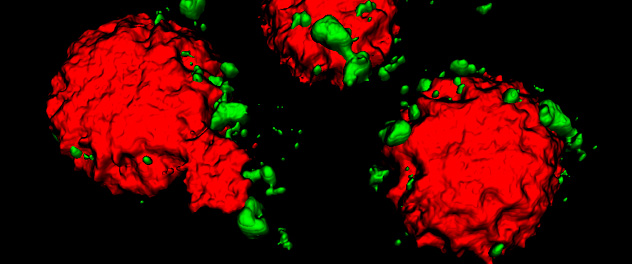
Linking biology and neuropathology
Dr. Springer's team aims to translate basic cell biological knowledge into the disease context, thereby bridging genetics and neuropathology.
-

Understanding enzymatic and biological functions
Dr. Springer's lab performs systematic functional analysis of genetic variants leading to insights into enzymatic, cellular and pathological changes. © Human Mutation. 2015;36:774. Used with permission.
-
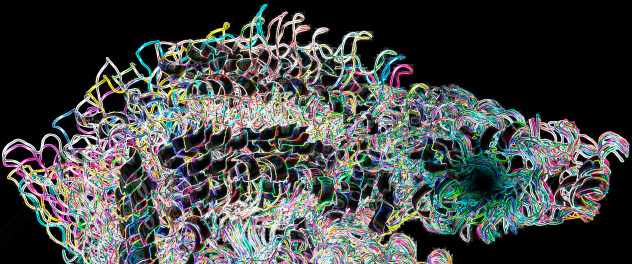
Understanding molecular structure and dynamics
The Translational Cell Biology of Parkinson's Disease Laboratory uses structural modeling and dynamic simulations to understand mechanisms for targeted drug discovery.
-
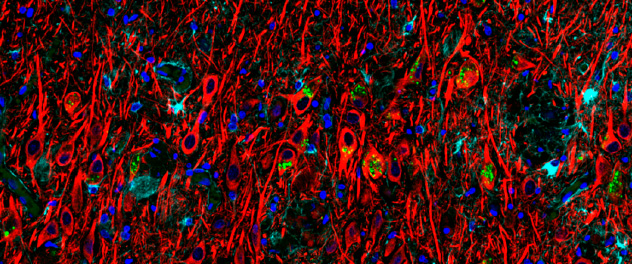
Discovering biomarkers
Disease-associated molecular and cellular changes are studied in animal models as well as clinical and pathological samples from patients for biomarker discovery.
-

Training next-generation scientists
The Translational Cell Biology of Parkinson's Disease Lab at Mayo Clinic studies health and disease from molecular and cellular perspectives to gain insights for therapy and prevention in the future.
-
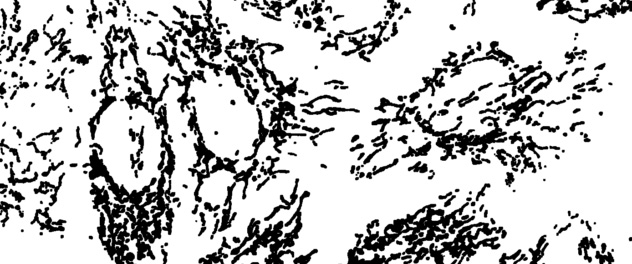
Understanding the role of mitochondria and lysosomes
Dr. Springer's team investigates the role of mitochondrial and autophagic and lysosomal (dys-) functions in the disease context using a multidisciplinary, translational approach to discover biomarkers and therapeutics.
-
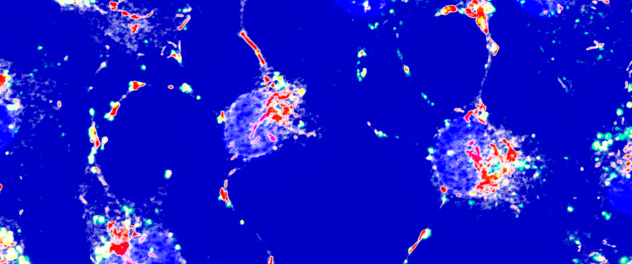
Illuminating cellular pathways
Advanced microscopy techniques such as high-content imaging, super-resolution imaging and digital pathology characterize dysfunctions in mitochondria, autophagy and lysosomes that emerge as common themes in several neurodegenerative disorders.
-

Disease in a dish
The Translational Cell Biology of Parkinson's Disease Lab uses CRISPR-Cas9 gene editing of neural progenitor cells and induced pluripotent stem cells (iPSC). Differentiation of patient-derived or engineered cellular models into neurons and other cell types allows modeling of the disease processes.
Overview
The Translational Cell Biology of Parkinson's Disease Laboratory led by Wolfdieter Springer, Ph.D., investigates the molecular and cellular mechanisms underlying Parkinson's disease and other related neurodegenerative disorders caused by cellular dysfunction. These discoveries include a genetic mutation that confers a risk of development of Parkinson's disease earlier than usual.
Loss-of-function mutations in a few genes are the most common genetic causes of early-onset Parkinson's disease, which occurs around age 45 or younger. To understand the initiation and progression of Parkinson's disease, Dr. Springer's lab uses cellular biology and bridges genetics and pathology to investigate selective autophagy pathways emerging as promising therapeutic avenues.
Dr. Springer's research team is studying the mitophagy pathway to identify novel key players and drug targets. He and his colleagues are dedicated to using their findings to discover treatments that affect underlying mechanisms of Parkinson's disease.
Dr. Springer's research team also has found that mitochondrial and autophagic lysosomal dysfunction appear to play a major role in the aging process and several other neurological disorders. The lab is analyzing the contribution of disturbances in these organelles to the aging process itself and the pathophysiology of several age-related human diseases, including Parkinson's disease, Alzheimer's disease, amyotrophic lateral sclerosis (ALS), frontotemporal dementias, lysosomal storage disorders and mitochondrial diseases.
Research focus areas
The goals of Mayo Clinic's Translational Cell Biology of Parkinson's Disease Lab led by Dr. Springer are to:
- Dissect the underlying disease mechanisms.
- Investigate the pathogenicity or protective effects of genetic variants.
- Develop novel biomarkers and small molecule therapeutics.
To accomplish these goals, the research team employs a multidisciplinary, translational approach using novel genome-engineered neurons, disease-relevant mouse models, as well as clinical and pathological human specimens. The team performs a wide range of structural, molecular, cellular and biochemical techniques, as well as state-of-the-art imaging, including unbiased high-content, live cell, super-resolution and automated slide-scanning microscopy. With integrated "omics" approaches, these techniques aid in structure-based drug design, function-based high-throughput screening of chemical and genomic libraries, as well as mechanistic validation. Identifying specific disease signatures and rational-designed, targeted therapeutics, Dr. Springer and his team hope to contribute to better stratification and disease-modifying treatments for people with neurodegenerative diseases in the future.
Affiliations
Dr. Springer's Translational Cell Biology of Parkinson's Disease Laboratory is affiliated with other Mayo Clinic research and education areas, including: